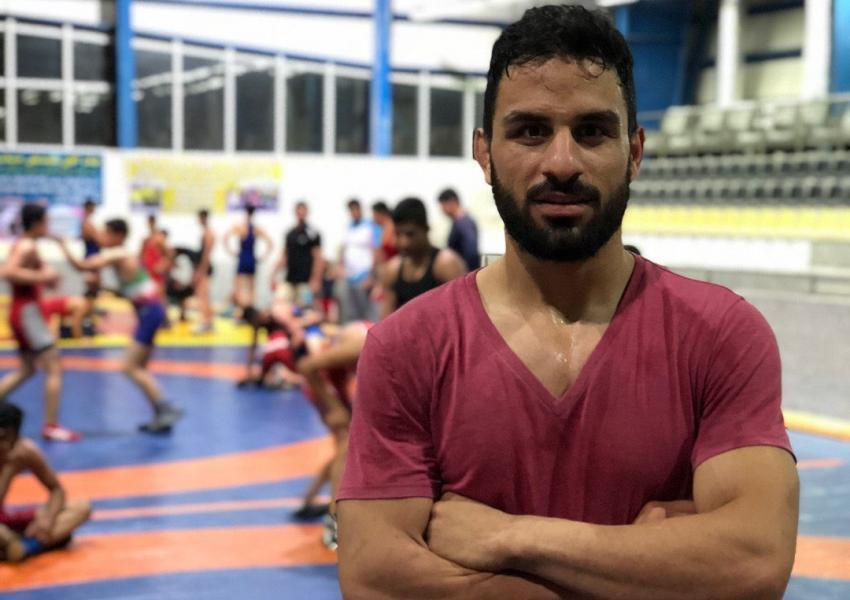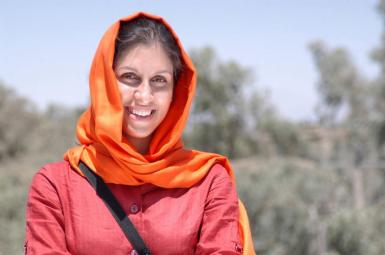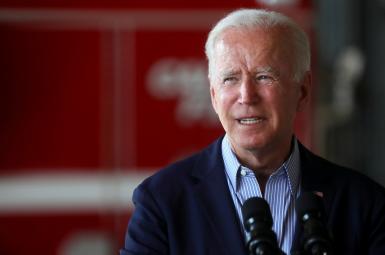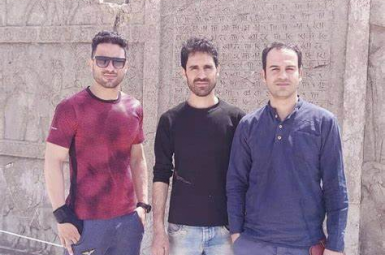
Should Iran Be Banned From International Sport?
Maryam Sinaee
A campaign promoted by Iranian human-rights activists to suspend Iran from international sports in response to September’s execution of wrestler Navid Afkari in September and over discrimination against women athletes has divided Iranians on social media.
The campaign, which is closely related to the movement against the death penalty in Iran, was launched in September by United States-based Iranian journalist Masih Alinejad. In reaction to the execution of Afkari, she urged international athletic organizations and federations to ban Iran from sporting competitions and events. Soon she was joined by Iran’s Nobel Laureate Shirin Ebadi and a host of other activists, politicians, journalists, athletes and ordinary people.
In a joint article with historian Abbas Milani and American-Iranian philanthropist Hamid Moghadam, Ebadi called on the Olympics and all other international sports federations and institutions to suspend Iran’s membership. The trio also urged international legal organizations to support jailed lawyer Nasrin Sotoudeh and other rights lawyers and to suspend ties with any legal organizations connected to the Iranian regime.
Supporters of the campaign say banning Iran from sporting events could contribute to the collapse of the regime just as Nelson Mandela’s campaign to isolate the Apartheid regime in international sport helped to overthrow it. They point out that the regime does not allow half of its population, women, to enter stadiums to watch football games and forces them to wear hijab in competitions. They argue that not allowing athletes to compete against Israeli athletes is anti-Semitic, and that Iran forces athletes to participate in religious ceremonies and other activities against their will.
The online campaign is named United For Navid (#United4Navid), and the petition posted on its website has been signed by nearly 5,400 people. Alinejad is well-known for two anti-hijab campaigns, No to Forced Hijab and White Wednesday, and had a well-publicized meeting in February with US Secretary of State Mike Pompeo.
The call on the international community to ban Iran has been opposed by some athletes and others on the grounds that it will harm Iranian athletes and ordinary people.
“What kind of pressure is the boycott of sports put [sic] on the regime? Will it make the [Supreme] Leader [Ali Khamenei] sad?” one supporter of the Iranian leader tweeted against the campaign. “Sports is the only cause of being happy that has remained for the people, they were so joyful because of the football win [by Persepolis against Saudi Arabia's Al-Nasr Riyadh in the Asian Champions League on October 3]. The [political] opposition is dying of anger… They want to frustrate the people.”
Another accuses activists like Alinejad of being “[Donald] Trump and sanctions devotees” who want the “hunger, suffering, misfortune and extinction” of Iran: “Sanctions have never resulted in freedom.”
Several supporters of a boycott point to South African leaders who campaigned for the international sporting isolation of the Apartheid regime.
“Boycotting sports means not acknowledging [the legitimacy] of a murderous, Isis-like regime,” tweeted Sheragim Zand, a journalist. “Was the international boycott of South Africa’s sports during the era of Apartheid ‘execution of sports’ [as some claim] and against the interests of the society and athletes or the right move with tangible results to be proud of?”






